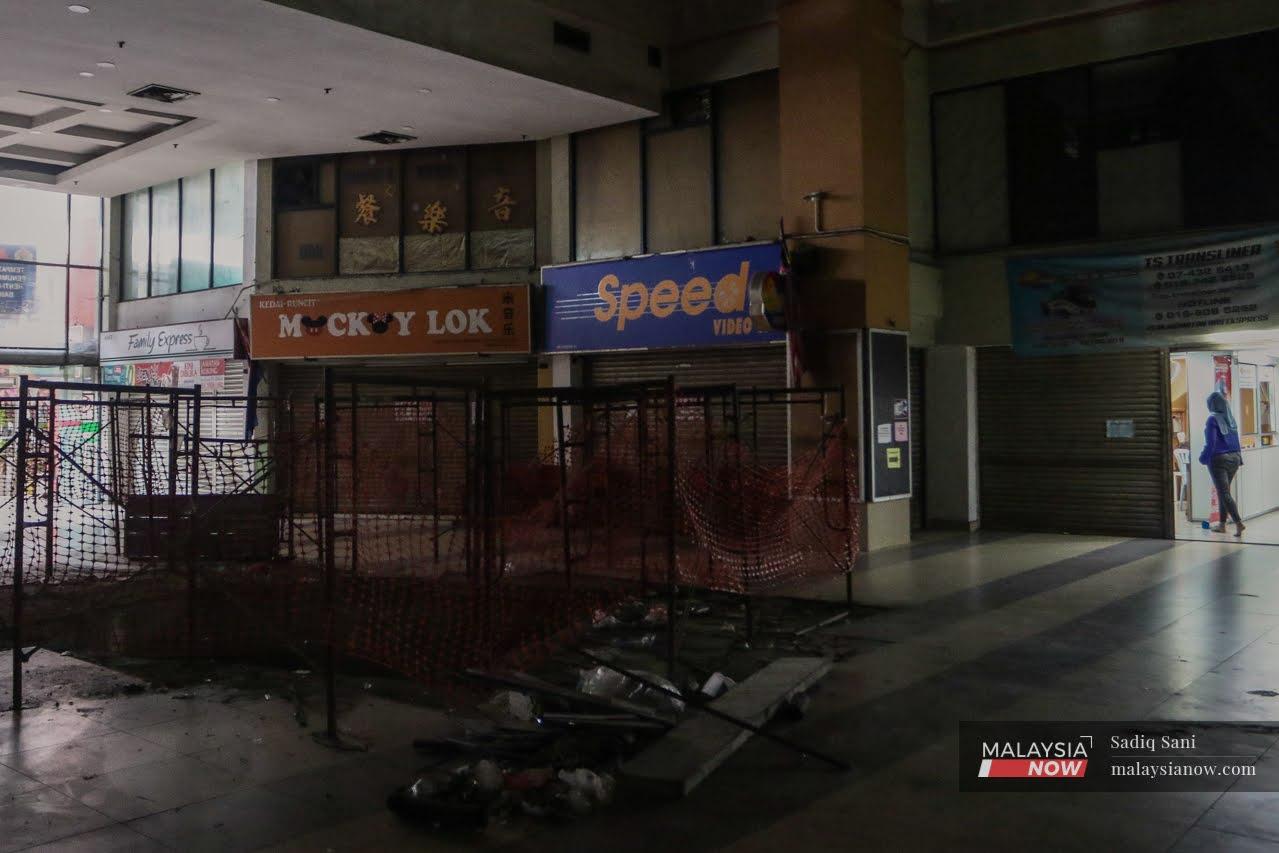From tourist hotspot to haunted house for Batu Pahat bus station
It once catered to thousands of travellers and crowds of visitors on a daily basis, but now, it is only an empty shell.
Just In
In the middle of the town of Batu Pahat stands an old building that could have come off the set of a zombie movie.
Quiet, dark and abandoned, even the sound of the wind falls to a whisper around it.
Once upon a time, the Batu Pahat bus station in Jalan Rugayah was a bustling hub of activity, full of people coming and going.
It also functioned as a shopping centre and a hangout spot for locals, housing a jumble of stores selling everything from clothing and stationery to school supplies and musical instruments.
After school, students would spend their afternoons at the three-storey complex at which a number of tuition centres had also set up shop.
Now, though, much has changed.

The only people around are the two guards who man the ticket counter inside. On the second and third floors, the atmosphere is eerily quiet.
Nothing but a gaping hole is left where escalators once ran through the centre of the complex, and the stairs and elevators appear shaky at best.
A trader who asked to be known as Saiful said the complex was supposed to be undergoing restoration works.
“But it’s been four years now and nothing has changed,” he added.
“The tenants have all left because there are no visitors and yet the rent is still high.
For Saiful, who has run a shop selling traditional medication for nearly 40 years now, this is a sad development.

MalaysiaNow understands that the project to overhaul the complex, worth almost RM24 million, started under the supervision of a contractor close to Umno. Work was expected to be completed within one or two years.
Monthly rental at the shoplots there runs to as much as RM4,000.
Lacking a train network or airport, Batu Pahat is reliant on its bus system. In its heyday, the bus station saw thousands of travellers passing through on a daily basis.
“But look at it now,” Saiful said. “There’s not even a single worker in sight. How much longer are we expected to wait?”
Saiful’s wife who goes by the moniker Kak Min shares his scepticism about those responsible for governing the area.
“They should think about the state of the traders here,” she said. “This bus station is the image of Batu Pahat. When it deteriorates to this state, how are the traders supposed to make a living?”

Another trader, Ati, took a more humorous view of the matter.
“Who says this place is empty? It’s full of lizards and cockroaches,” he said, laughing as he spoke to MalaysiaNow at his mobile phone repair shop.
But he, too, is worried about the safety of the building.
Overhead, the ceiling is riddled with holes, while the floor is covered in moss and fungus. Parts of the walls meanwhile have begun to crumble, and garbage is everywhere.
Ati, too, remembers a time when things were very different.
When he first opened his shop more than 18 years ago, he had to weave his way through crowds of visitors in order to get in.

“Now, no one is here,” he said. “Even the workers do not come. When asked, they said it would be a year. After that, another year.
“Projects like this, if you do a proper job of them, they can be finished in a year or slightly more.”
Rickety and decrepit, the old building is surrounded outside by the noise and colour of other shoplots where business still thrives.
Ati said many of his friends who once rented shoplots in the complex had moved to other such malls.
At the old bus station, a handful of counters are still open. But many operators are believed to have closed shop due to the economic downturn during the movement control order.
MalaysiaNow has reached out to the Batu Pahat Municipal Council and the contractor of the project for a response.
Subscribe to our newsletter
To be updated with all the latest news and analyses daily.
